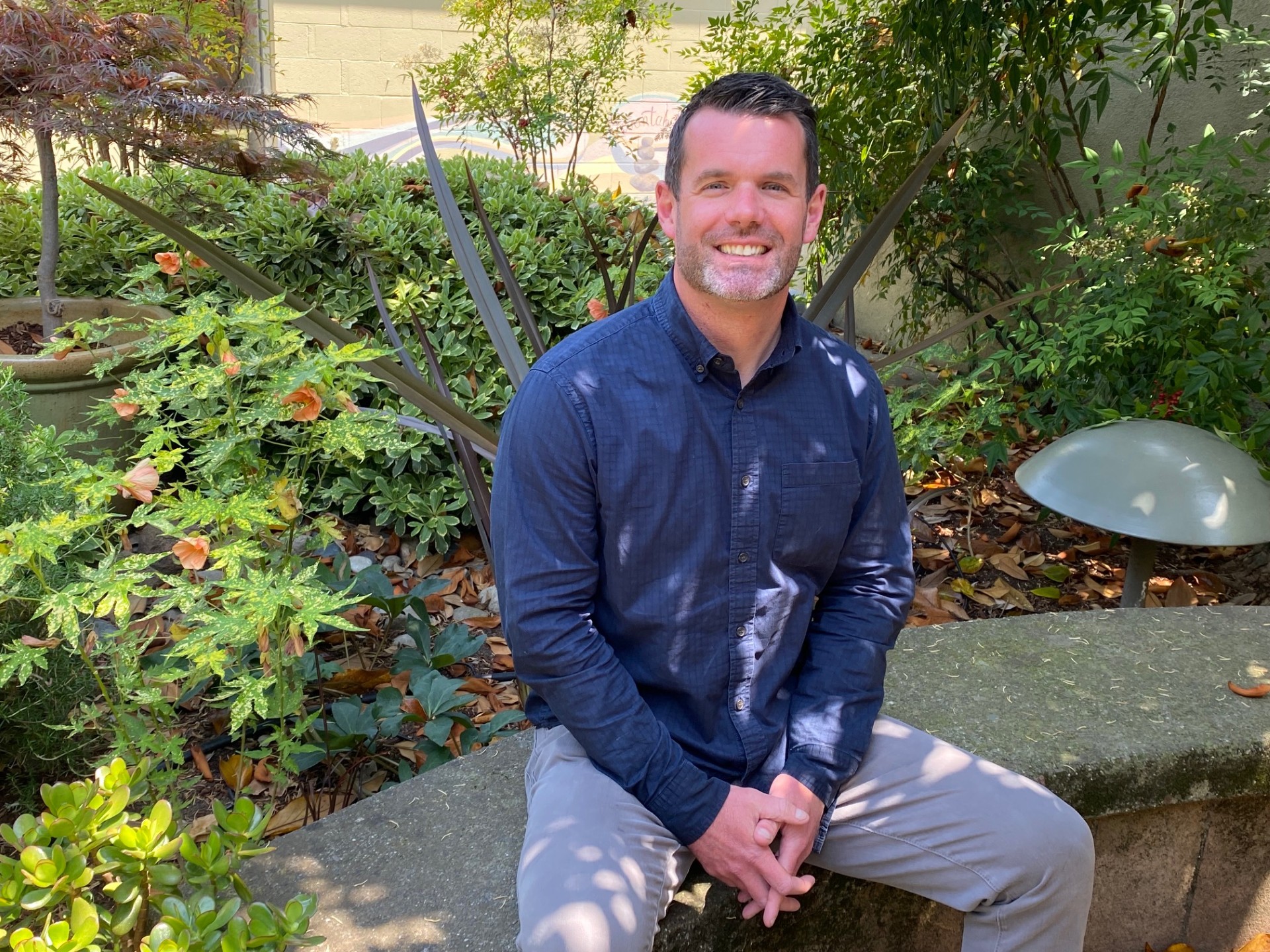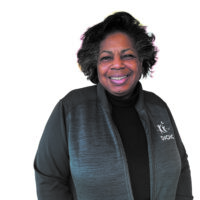At the helm since the end of this April, Ben has been CFO at the hospital since the spring of 2022. Anna Pier sat down to talk with the young (43) and enthusiastic Interim CEO about his ongoing and new roles, and what he thinks the effects of the recently passed Benefits and Budget Reconciliation Act will be on our Sonoma Valley Hospital.
How long will you be Interim CEO? Until we have a new CEO. There is a search committee working, through UCSF and the Health Care District Board. It includes some board members, physicians, key community members, and a national search firm. As Interim, I had some really big shoes to fill. And I’m proud of what we’ve been able to accomplish. Through UCSF we hired a full-time Chief Medical Officer. It’s a double win, because he will bring his specialty, gastroenterology, to the Valley. Due to work obligations, he will start in October.
Are you glad you took the job in Sonoma? I’ve fallen in love with this community, with our community hospital. It was very easy to do. And my wife Anna is in the community too, as one of two RNs for Sonoma Valley Unified schools. I am awed by the people who show up every day to work with purpose and heart because they want the hospital and the community to thrive.
Tell me more. For a hospital like this, culture is everything. I really appreciate how in a small community hospital people are wearing many hats just to get things done. Oftentimes I may have three or four meetings in a day on different topics, and they are with the same people. For example, our Chief HR Officer is also our Privacy Officer, and the Chief Nursing Officer acts as House Supervisor. It is really fun being in a place where people enjoy rolling up their sleeves and getting it done. I’ve never heard, “That’s not my job.”
This is why I feel very confident that, even with the challenges of the upcoming huge cuts to Federal healthcare spending, we have created a path for the Hospital where we can keep sailing on.
Talk about the upcoming cuts. First, the cuts are not slated to go into effect until 2027. But there is lots to be concerned about, there will be a huge impact, especially in hospitals like ours that care for a lot of Medicaid patients. This is a service that is already underwater, because SVH is not officially designated a “rural hospital,” so there are systemic failures in the reimbursement system. SVH relies on what is called ‘supplemental funding’ for 20% of its revenues, and we anticipate a funding reduction in that starting in 2027.
Other challenges from the new legislation? The new eligibility requirements for MediCal (Medicaid in California) mean the inevitability of people falling out of coverage. This will increase pressure on Federally Qualified Health Centers – such as our Community Health Center – and destabilize critical parts of health care delivery in the Valley. SVH will feel the downstream impact through increased demand for uncompensated care, most likely coming through the hospital’s emergency room. We will need to pool our resources, utilize our resources, working together with the Community Health Center to advance care into the community.
On the hopeful side? When I was hired as CFO my charge was, working with the CEO, to find and create a path for this hospital to achieve and sustain financial stability. We’ve navigated some choppy waters. We’re very proud of the progress we’ve made. We just closed our June year-end budget, and we are outpacing our current and prior year. This is the best financial year since I have been at SVH, so that hopefully gives us more of a cushion.
Other challenges? We just identified $4 million in capital infrastructure improvements that are needed.
How did you get here, become a health care financial expert? When I was a boy, growing up in Grand Rapids, Michigan, I wanted to be a baseball player and an astronaut. I certainly never would have thought of health care, or of accounting. I didn’t have a passion for math. But I loved accounting in college – I enjoy solving problems. So I majored in it, and I ended up with a job in health care. I have spent almost twenty years in health care accounting. I just really like the numbers. And I like to implement strategies and see if they are working out. I enjoy the analytical side of health care, I’m kind of enamored by the complexity of it.
No regrets? Life at a community hospital from a business standpoint can definitely be a grind. It comes down to that I am passionate about community hospitals.
Before you came to Sonoma Valley Hospital? I cut my teeth for this job in Fresno, where I moved, with my now wife, in 2010 from Michigan to work at a Community Health Center that was a Level 1 Trauma Center. In 2013, I became CFO of the hospital, and then I was CFO of a physician foundation in Fresno. During that time I got my MBA at Fresno State. Many of our patients at the Health Center were medically indigent, and the job meant learning how to do more with less. That’s really been the story of health care.
Final thoughts for our readers? There are so many benefits to being an independent community hospital. I know it’s a cliché, but Sonoma Valley Hospital really is greater than the sum of its parts. That’s due to the people.










Be First to Comment